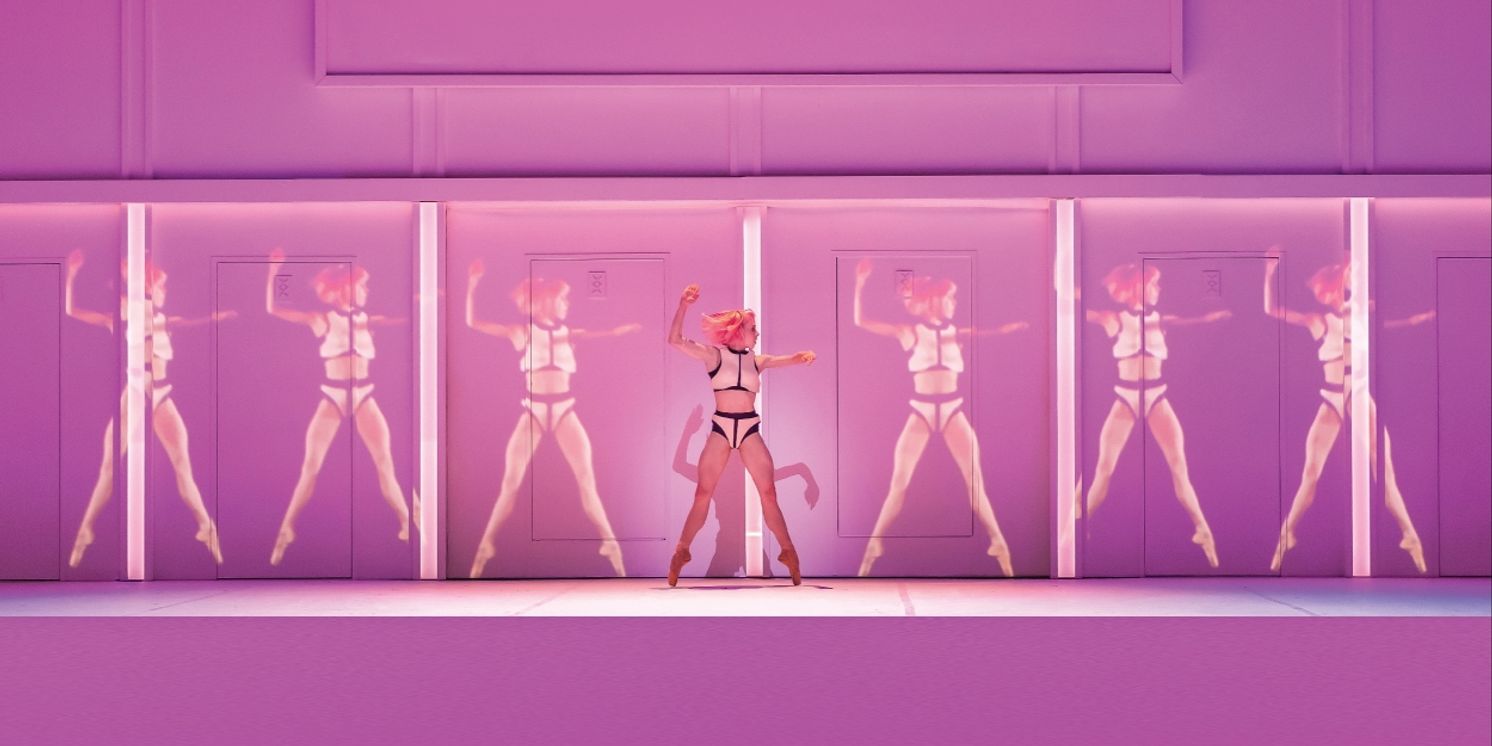Review: COPPELIA, Sadler's Wells
A visionary ballet that couldn't be more now if it tried.

![]() Its been a week for ballet to shed any sense of staidness and show off a couple of its most radical re-imaginings. While the Royal Ballet's Woolf Works took on the classic books of a more famous Victorian, Scottish Ballet's Coppélia (subtitled "The Search For Reality In An Artificial World") is all about pushing Arthur Saint-Léon's comic work from 1870 into the near future.
Its been a week for ballet to shed any sense of staidness and show off a couple of its most radical re-imaginings. While the Royal Ballet's Woolf Works took on the classic books of a more famous Victorian, Scottish Ballet's Coppélia (subtitled "The Search For Reality In An Artificial World") is all about pushing Arthur Saint-Léon's comic work from 1870 into the near future.
In the original tale, a betrothed man becomes mesmerised by a woman on Dr Coppelius' balcony. Determined to quash this distraction, his fiancée Swanhilda sneaks into the doctor's house and finds that it is full of life-size mechanical dolls, including her erstwhile rival. Franz, meanwhile, climbs up to the balcony and is asked in by the doctor. From her hiding place, Swanhilda finds out that the doctor plans to use bring Coppélia to life by using her husband-to-be as a human sacrifice...
The Scottish Ballet move the action away from a Polish village into the laboratory of NuLife, a startup populated by ridiculously good-looking researchers and their sinister tech bro leader, nattily dressed all in black. Journalist Swanhilda (a supremely engaging Constance Devermay) arrives with her partner Franz (Jerome Barnes) to check out the facilities and interview Coppelius (Bruno Micchiardi)) about his AI creation and his hopes to give her life.
Dramaturg Jeff James makes it clear that this 21st century Frankenstein is not a man who cares what others think ("I'm sure my critics, as you call them, are good, decent people, but I have zero desire to read a word that they write. When I want to be wilfully misunderstood, I can just talk to my children.") and has a cynical view of the world ("A relationship between two humans is built on deception, on half-truths, on unspoken messy compromises. We have worked hard to make Coppélia as fake as a real human."). Swanhilda obviously has never seen The Rocky Horror Picture Show - why else would she agree to stay overnight in some mad robot scientist's lair - and soon both her and Franz become caught up in Coppelius' grand scheme.
This one-act ballet isn't long by classical standards coming in at under 100 minutes but directors and choreographers Morgann Runacre-Temple and Jessica Wright (collectively known as Jess and Morgs) don't ever leave us asking for more. From the perky opening as we meet Swanhilda and Franz perks up through to the final battle, the exhilarating dancing conveys an electric energy throughout.
The visual aesthetic here is simply astounding. Annemarie Woods' iconic costumes are the obvious eye-grabbers but it doesn't end there. A large screen is used to introduce to Coppelia's AI world and becomes an integral part of the story when Swanhilda joins her in the AI's virtual reality, while projections from a live cameraman (as seen recently in Bat Out Of Hell and OKLAHOMA!) helps immerses us in this sci-fi scenario. Down in the pit, Jean-Claude Picard and the Scottish Ballet Orchestra convey perfectly the jaunty Mikael Karlsson and Michael P Atkinson's score which riffs off Léo Delibes's original music.
Jess and Morgs' staging may seem brash and gauche to those who are here just for the pliés and pirouttes but they have given this venerable ballet a new depth and considerable substance. With ChatGPT hogging the headlines and a hubristic tech entrepreneur controlling a major social media company, this ballet couldn't be more now if it tried. When Coppelius asks Swanhilda "do you derive more pleasure from running your finger along your lover's skin or across the glass surface of your phone?", Coppélia holds a brutal mirror up to modern society in a way no ballet has for quite some time.
Photo credit: Andy Ross
Reader Reviews
Videos

